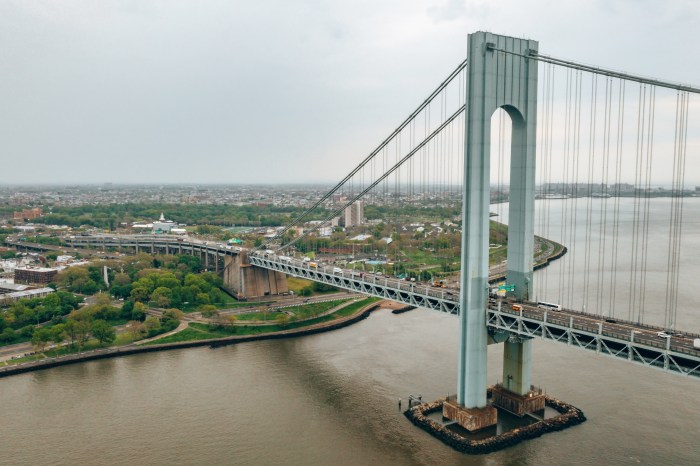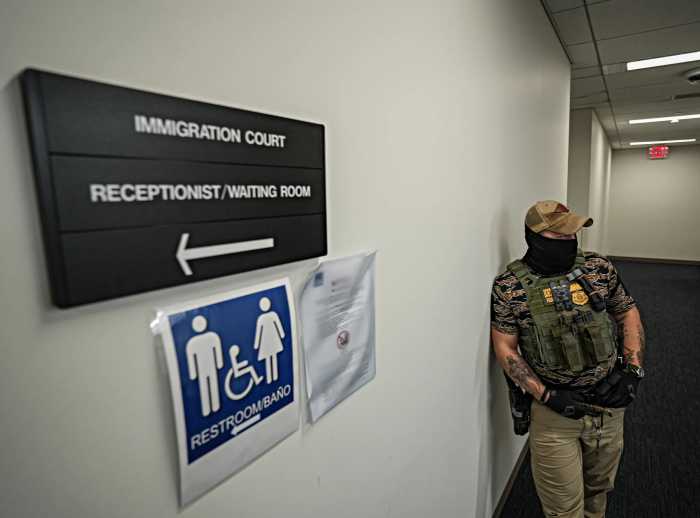The Independent Budget Office recently took a look into what it would cost for Staten Island to secede from the rest of the city and found it would result in Staten Islanders paying more for fewer services than they currently receive.
Staten Island would run a deficit between $171 million and $199 million if they broke away from the rest of the five boroughs, states a May 2 IBO report. The review included a deep dive into previous studies from another secession attempt in the 1990s, which weighed both fiscal and operational impacts of the potential separation.
The in-depth analysis, performed at the request of southern Brooklyn Council Member Justin Brannan, found just how complex a secession would be — and that it would likely result in years of litigation. Residents would have to either raise the area’s overall revenue, reduce benefits and services, or perform an unfortunate combination of both.
“The calls for Staten Island secession are adorable but ill-advised,” Brannan said in a statement. “It would absolutely positively make things worse for hardworking Staten Islanders.”

It’s not the first time the “forgotten borough” has tried to cut itself off from the rest of the city. According to IBO research, the area originally tried to secede in the 1940s when then-leaders proposed a new garbage dump in Fresh Kills.
In 1990, residents once again pushed for a split. A vote to secede sparked the creation of a State Charter Commission for Staten Island, which drafted official documents in favor of an independent Staten Island. The charter also studied the potential implications of this decision.
Sarita Subramanian, senior research and strategy officer at the IBO, noted their review of this data excluded operational challenges that could arise due to the pre-existing capital infrastructure which has been paid for with municipal funding. These systems include police, fire, and correctional services, waste removal and snowplowing, schools, libraries, public hospitals and other human services.
“We can’t really make the assumption that Staten Island would choose to operate services at the same level as the city has provided,” she said. “Understanding what it would take to disentangle Staten Island’s capital infrastructure from the city’s is a big consideration.”
Sarah Parker, another senior research and strategy officer with IBO, said the “hypothetical exercise” examined what would happen if tax rates and revenues remained the same as they were during the 1992 study.
In 2022, IBO estimated that Staten Island brought in $1.9 billion in revenue from the three largest tax incomes: property tax at $1.1 billion, personal tax at $509 million and sales tax at $301 million. To secede would mean redirecting this revenue to pay for a number of city services which an independent Staten Island would have to foot the entire bill for.
Still, in 2023, calls for secession grew after the city responded to an influx of migrants by turning pre-existing infrastructure including school gyms and hotels into emergency migrant shelters. Residents and politicians have heavily weighed into the matter.
U.S. Rep Nicole Malliotakis, who represents parts of both Brooklyn and Staten Island, called out Mayor Eric Adams last fall, saying that if he wasn’t going to “do his job” in response to the crisis, then he should let Staten Island secede.

While some may be in favor of a divorce between Staten Island and the rest of the city, others are calling for a rekindling of the two. Brannan and Council Member Kamillah Hanks, who represents Staten Island, recently shared a joint push for NYC Ferry service connecting Staten Island and southern Brooklyn.
“While it’s easy for elected officials in Staten Island to blame all their problems on the rest of the city, and to win support for a bogus cure, the hardworking people of Staten Island deserve elected officials willing to do the hard things instead – working with their citywide partners to deliver actual results,” Brannan said.” Instead of perpetuating this fake panacea, let’s work together to ensure Staten Islanders forget they ever referred to themselves as the forgotten borough.”
The IBO does not take a position on the potential secession and instead strove to review the various impacts the split would make, according to Subramanian.























